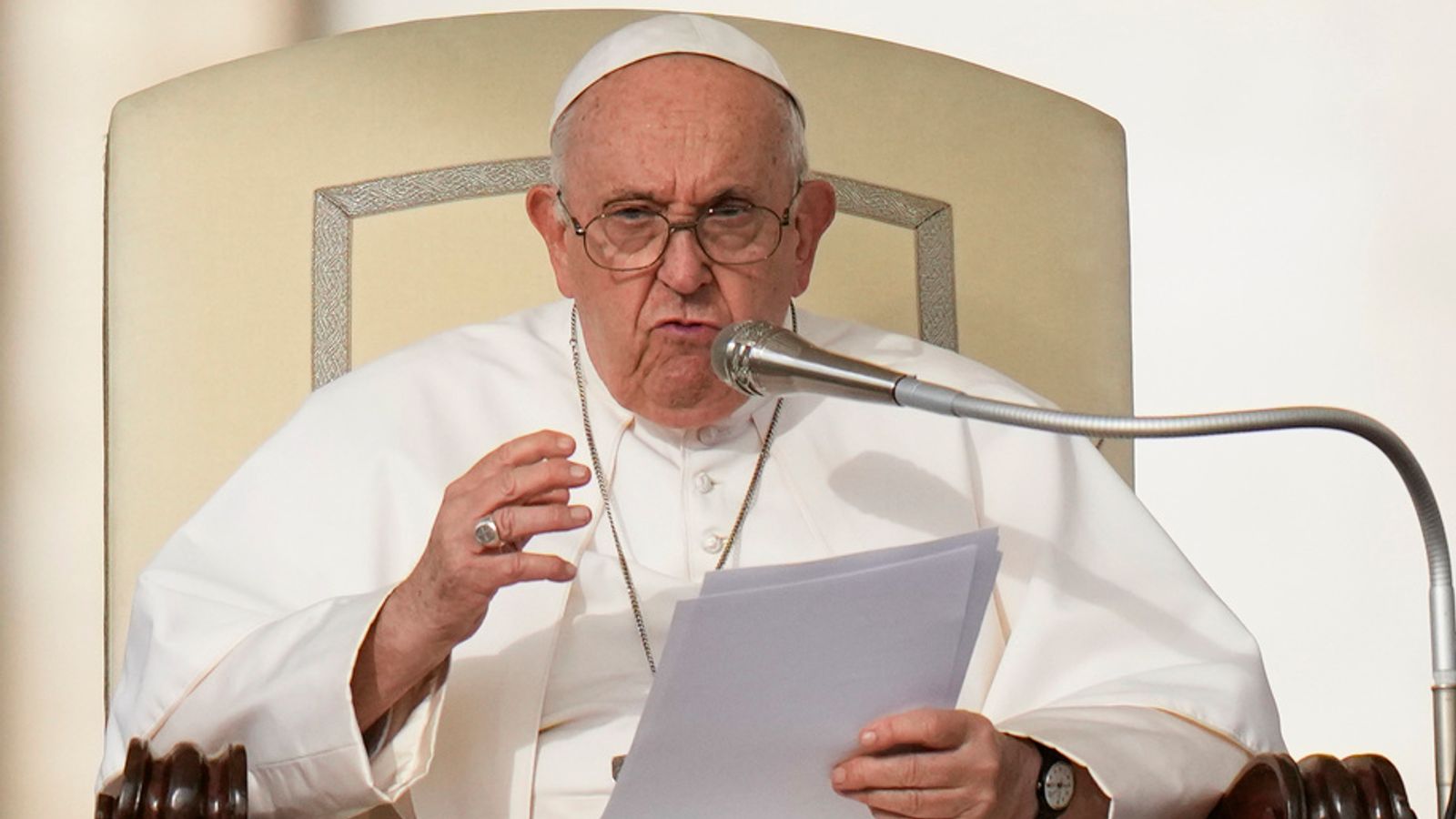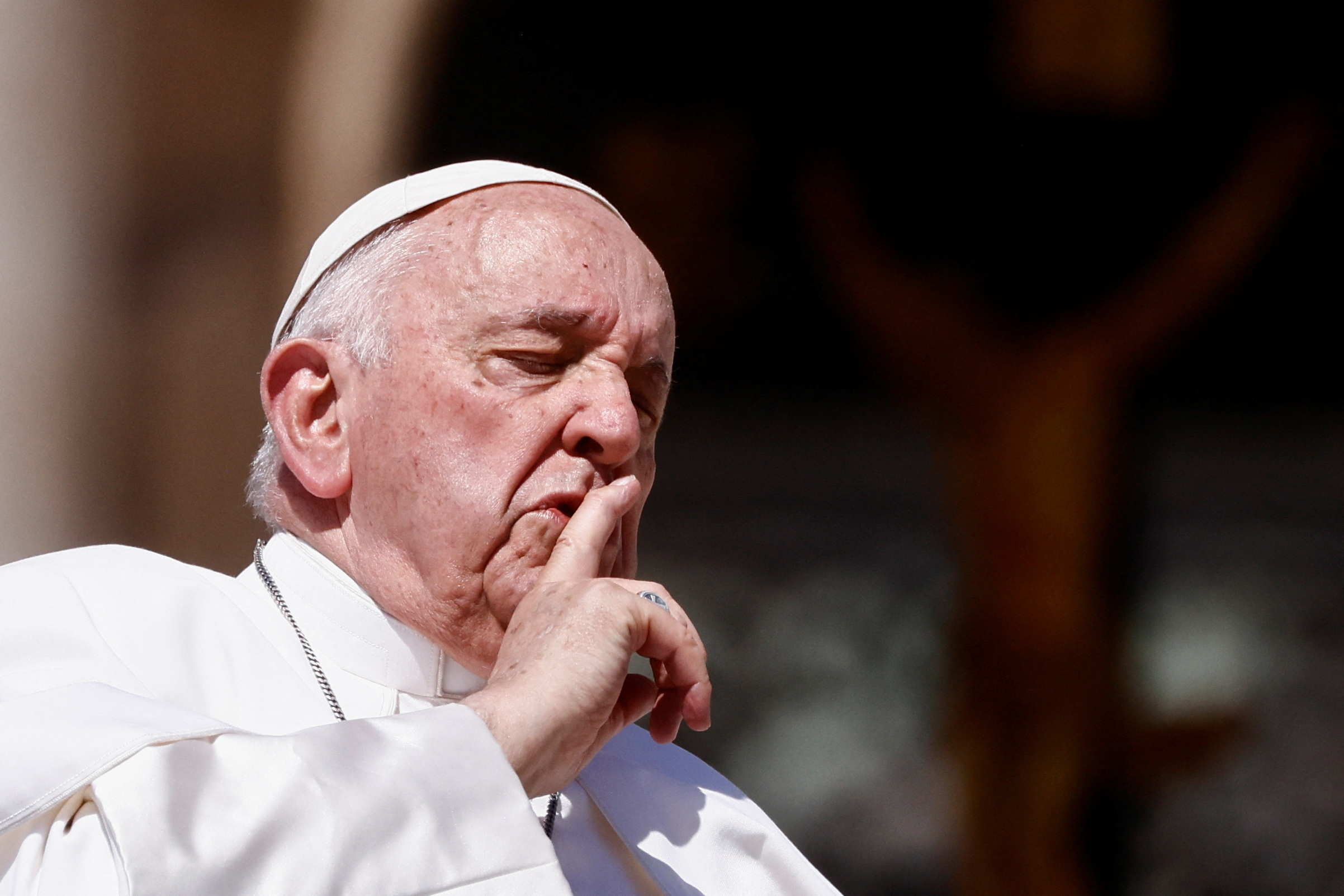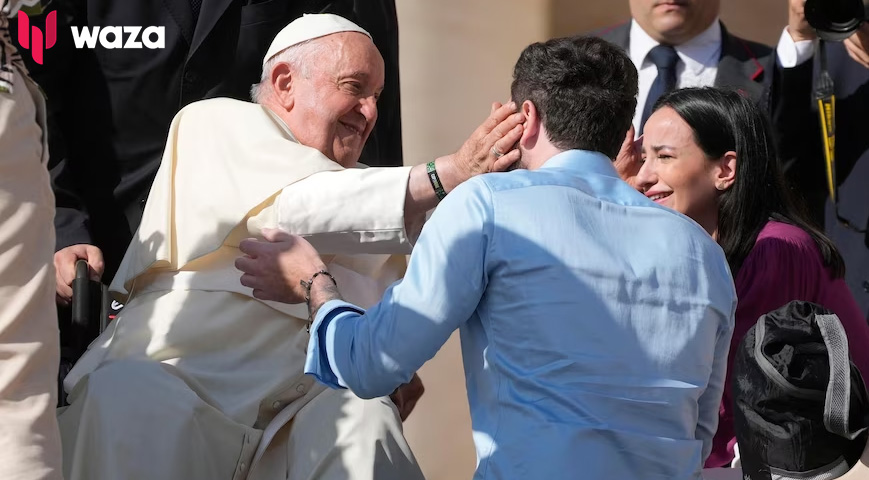In an interview that was released on Monday, Pope Francis stated that Africans were a "special case" when it came to the bishops' and many other Africans' opposition to homosexuality.
However, he expressed confidence that those who were critical of his choice to permit blessings for same-sex couples would eventually come to understand it, except Africans.
Last month, blessings were permitted in a document known as Fiducia Supplicans (Supplicating Trust). This document has sparked intense debate within the Catholic Church, with African bishops fighting particularly vigorously.

"Those who protest vehemently belong to small ideological groups," Francis told Italian newspaper La Stampa. "A special case is Africans: for them, homosexuality is something 'bad' from a cultural point of view; they don't tolerate it."
Did you read this?
"But in general, I trust that gradually everyone will be reassured by the spirit of the 'Fiducia Supplicans' declaration by the Dicastery for the Doctrine of the Faith: it aims to include, not divide," the pope said.
Francis seemed to acknowledge last week the backlash the document faced, particularly in Africa, where some countries have the death penalty or even prison sentences for same-sex relationships and where bishops have effectively rejected the document.
He said that priests "naturally take into account the context, the sensitivities, the places where one lives and the most appropriate ways to do it" when bestowing blessings.
During the interview with La Stampa, Francis expressed his lack of concern regarding the possibility of conservatives leaving the Catholic Church due to his reforms. He claimed that talk of a schism is typically spearheaded by "small groups."
"We must leave them to it and move on...and look forward", he said.
Speaking about Israel and the Palestinians, he lamented the growing intensity of their conflict. He stated that "true peace" would not come until a two-state solution is implemented.

Francis revealed that he will meet with his native Argentina's president, Javier Milei, on February 11 and that he may eventually make a trip back to the nation, which he has not been since becoming pope in 2013.
He said he plans to travel to Belgium, East Timor, Papua New Guinea, and Indonesia in 2024.
Speaking about his health, which has suffered in recent years with hospitalizations, mobility problems, and canceled trips or events, the 87-year-old said, "There are some aches and pains, but it's better now. I'm fine."









